Why Does Pool Water Make Your Skin Itch?
If your skin ever feels dry, tight, or itchy after a swim, you're definitely not alone. That post-pool irritation is something many swimmers deal with, especially during warmer months when pool use ramps up. Pool time is a great way to cool off, but it can come at a cost to your skin, especially if you swim regularly.
Pool water isn’t as pure as it looks. Even though it’s cleaned and filtered, the chemicals used to maintain the water can mess with your skin’s natural balance. For those who swim often or spend time in treated water, knowing what’s inside that water and how it interacts with your skin is a smart first step toward getting ahead of the itch.
What’s In Pool Water?
Most pools use chlorine to keep things clean and safe to swim in. Chlorine kills bacteria, breaks down body oils, and helps prevent the spread of germs. It sounds useful, and it is, but it doesn’t stop there. Chlorine also sticks around on your skin, where it continues to react with your skin’s natural moisture and oils.
Here are a few things commonly found in pool water:
- Chlorine: The most common disinfectant in pools, added in liquid, tablet, or gas form
- Chloramines: Compounds that form when chlorine binds with sweat, body oils, and urine
- pH Balancers: Chemicals used to keep the pool water from being too acidic or too basic
- Other additives: These include algaecides and clarifiers used to maintain clarity and prevent algae growth
When these mix together, especially in public pools with higher traffic, the water can be pretty aggressive on your skin. Even clean, well-maintained pools use chlorine in levels that your skin might react to over time. If you smell a strong chemical scent near the pool, that could mean a high presence of chloramines, which can irritate skin more easily.
These chemicals are necessary to make the pool safe, but when they come into contact with your skin, the side effects can include dryness, itching, and redness. The longer you stay in the water, the stronger the reaction can be.
How Chlorine Affects Your Skin
Your skin has a natural barrier called the acid mantle. It's a thin layer made of sweat, sebum, and friendly bacteria that helps keep moisture in and unwanted things out. Chlorine wears down this layer quickly. Once that barrier is broken, your skin loses hydration faster and becomes more prone to irritation.
This is usually why, after a long swim or just an afternoon at the pool, your skin feels:
- Tight or dry
- Itchy
- Slightly red or blotchy
If you already have sensitive skin or conditions like eczema, regular pool exposure can make those problems worse. You may notice peeling, raised patches, or a rash. These symptoms usually aren’t dangerous, but they are annoying and uncomfortable.
Frequent swimming in chlorinated water can worsen the dryness over time, especially if there’s no care taken before or after. Parts of the body that get more friction — like knees and elbows — may feel rougher due to ongoing dryness made worse by chlorine. The more you swim without taking steps to protect or restore your skin, the worse those effects may get.
The good news is you don’t have to stop swimming to fix it. There are simple things you can do to help protect your skin and keep it feeling good even after a long pool session.
Preventative Measures
The best way to reduce skin irritation from chlorine is to prepare your skin before you even jump into the pool. A few quick steps can make a big difference, especially for people who swim often or already deal with skin issues. Prepping your skin lowers the amount of chlorine that gets absorbed in the first place.
Most of these steps take just a few minutes and are easy to fit into even the busiest swim routine:
- Rinse off in the shower first. Wetting your skin with clean water ahead of time limits how much chlorine soaks in.
- Apply a swimmer-specific barrier lotion or waterproof moisturizer to your exposed skin. These act like a light shield between your body and the pool water.
- Wear a swim cap and rash guard for extra protection, especially if you'll be in for a while. Less skin exposure means less irritation.
- Don’t skip sunscreen if you’re outdoors. Use water-resistant sunblock. It gives added protection against both UV rays and chemical reactions with the skin.
Think of each of these like a mini defense strategy. When you layer them together, they offer better results with very little effort. Whether you're swimming every day or just a few times a week, this prep provides helpful protection to keep your skin calm.
Post-Swim Skin Care Routine
After your swim, your skin needs attention to help it recover from chlorine exposure. Too many swimmers forget or skip this part and then wonder why their skin feels worse after every session. The good news is that a few steps are all it takes to rebalance your skin and avoid that lingering itchy feeling.
Begin by rinsing off with warm water as soon as you're done swimming. Skip the hot water, as that can dry skin even more. Look for gentle body washes that are made to remove chlorine without extra harsh ingredients. Avoid heavily fragranced soaps or anything gritty, especially on sensitive or already-irritated skin.
Once you’re clean and fully dry, moisturize right away. Choose products designed for post-swim care or those made for sensitive skin. Fragrance-free lotions with ingredients like aloe vera or natural oils can help restore hydration. Focus on commonly dry spots like knees, elbows, and hands, as they tend to lose moisture the fastest.
Keep this basic post-swim routine handy:
- Rinse your skin immediately after swimming with warm water
- Wash gently using a chlorine-removing body wash or cleanser
- Dry off with a soft towel, avoiding rough scrubbing
- Apply a fragrance-free, hydrating moisturizer within a few minutes of toweling off
- Apply more lotion later in the day as needed
Sticking to this routine each time you swim helps stop irritation from building up. Like brushing your teeth, making it a habit protects you over time. This kind of regular care is even more helpful in summer, when swimming happens more often and your skin is already exposed to the sun and wind.
Time to Enjoy the Pool Without the Itch
Swimming is supposed to be fun, and that post-swim itch doesn’t have to be part of the deal. Chlorine helps keep the pool clean, but it can take a toll on your skin if you’re not ready for it. With a little understanding about what’s in the water and a few simple changes to your routine, you can keep your skin feeling great no matter how often you swim.
Whether you’re heading to the pool to do laps or hang out with friends, it’s easier to fully enjoy the moment when your skin isn’t dry or irritated. Preparing ahead and taking proper care afterwards helps prevent flare-ups, so you can keep doing what you love—just with happier skin. Over time, you’ll likely notice smoother, healthier skin that handles your pool sessions with ease.
After enjoying a dip in the pool, it’s always great to keep your skin healthy and comfortable. TRIHARD offers solutions that make a difference. Discover how our products can help with skin protection from chlorine water, and keep your post-swim care routine effective and easy.


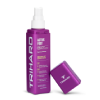



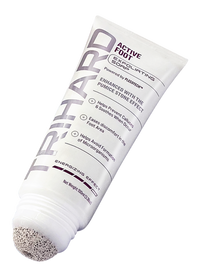



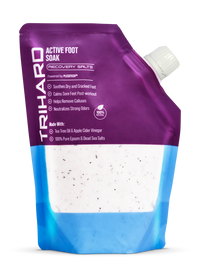






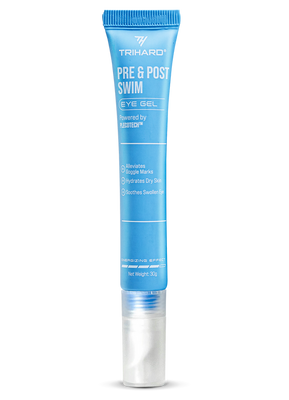





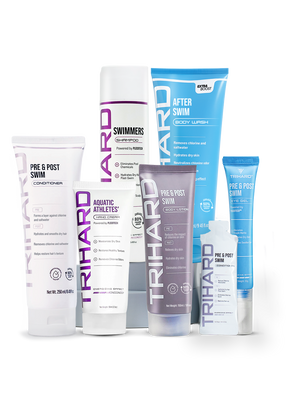







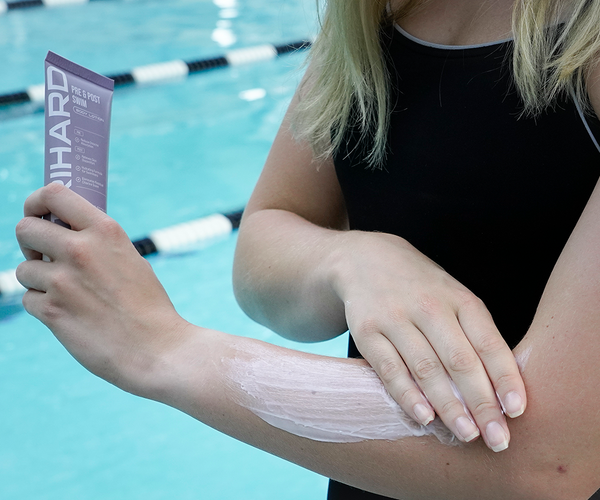

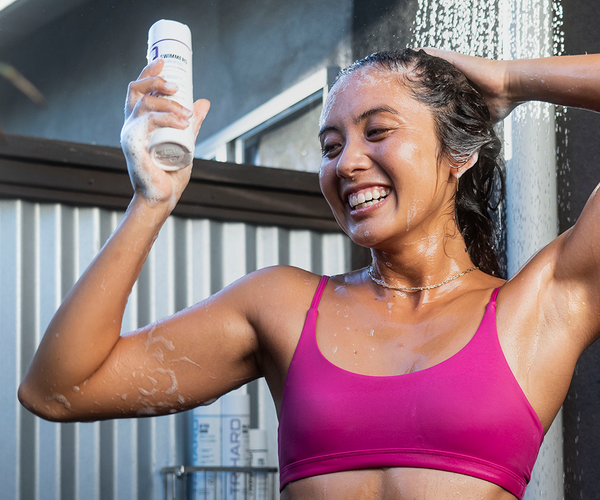
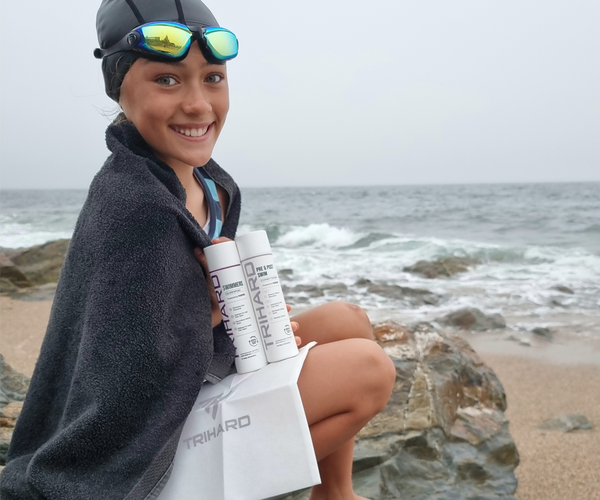
Hinterlassen Sie einen Kommentar